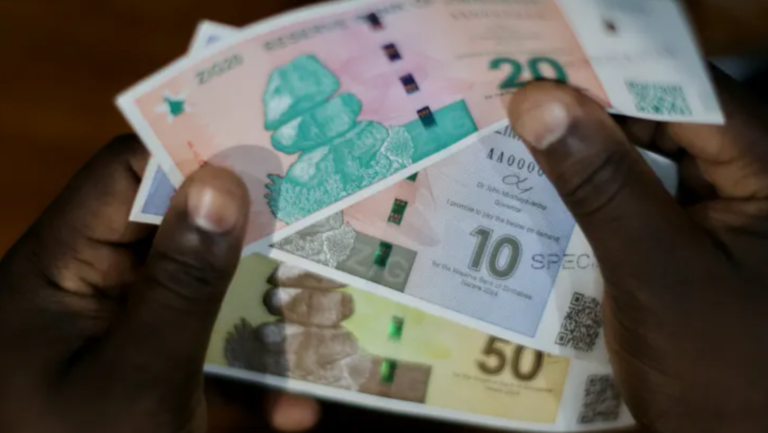Five months after its introduction, Zimbabwe’s new currency, the gold-backed ZiG, is facing significant challenges as a lack of public confidence and dwindling foreign reserves threaten its stability. The ZiG which is short for Zimbabwe Gold, was launched in April 2024 as the country’s sixth attempt in 15 years to establish a stable currency. However, it has already depreciated by almost 80% against the US dollar on the black market.
The depreciation highlights the deep rooted skepticism towards the new currency among Zimbabweans, many of whom still prefer transacting in US dollars. This lack of confidence stems from the country’s history of hyperinflation and failed currency reforms.
Market traders like Maynard Maketo, a street vendor, express their reluctance to use the ZiG due to its volatility, stating “The ZiG has been getting weaker so it does not make business sense to transact with it. I do not have faith in the ZiG. We have been here before with the Zimdollar”.
This preference for the US dollar is further reinforced by businesses that are hesitant to accept the ZiG, fearing potential losses from its instability. Carol Munjoma, a grocery trader in Harare, explains her decision to transact exclusively in US dollars
“Where I buy these groceries, they do not accept ZiG. So to protect my business I charge in US dollars. The ZiG would have to be stable to be accepted here”. Carol explained. Despite the challenges, Persistence Gwanyanya, a member of the Reserve Bank of Zimbabwe’s Monetary Policy Committee, believes it is premature to label the new currency a failure.
He suggests that increased government usage of the ZiG, particularly for tax collection, could bolster its acceptance. Gwanyanya also emphasizes the need for the government to intervene by injecting more foreign currency into the market to stabilize the exchange rate.
While authorities remain optimistic about the ZiG’s future, the prevailing public skepticism and the depreciation of the currency on the black market present significant hurdles to its widespread adoption.
MORE: Ugandan Vaccine Factory Dei BioPharma Faces Criticism Amid Opening Reports
Whether the government can implement effective measures to restore confidence in the ZiG and achieve its goal of making it the sole legal tender by 2026 remains to be seen.

